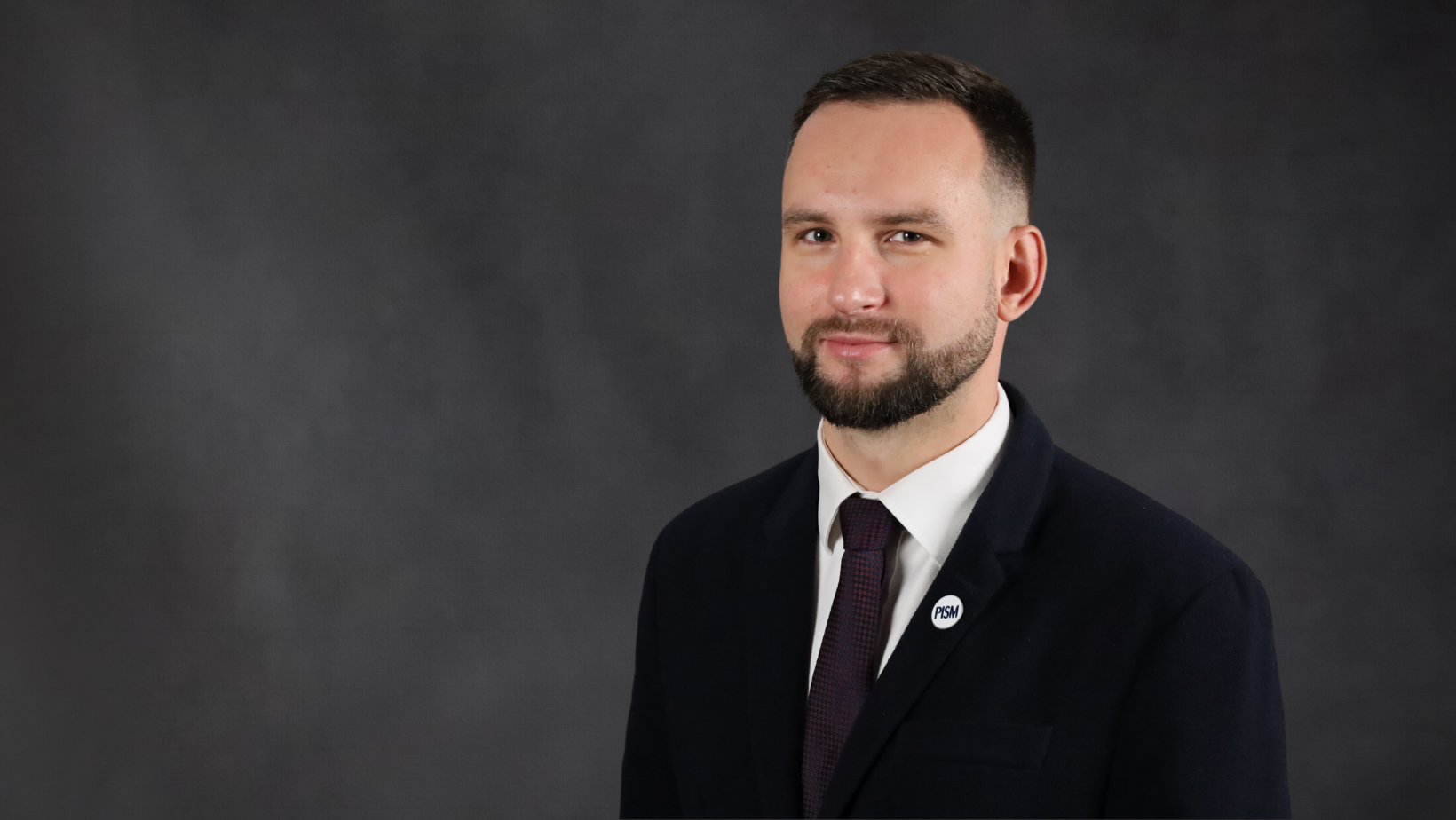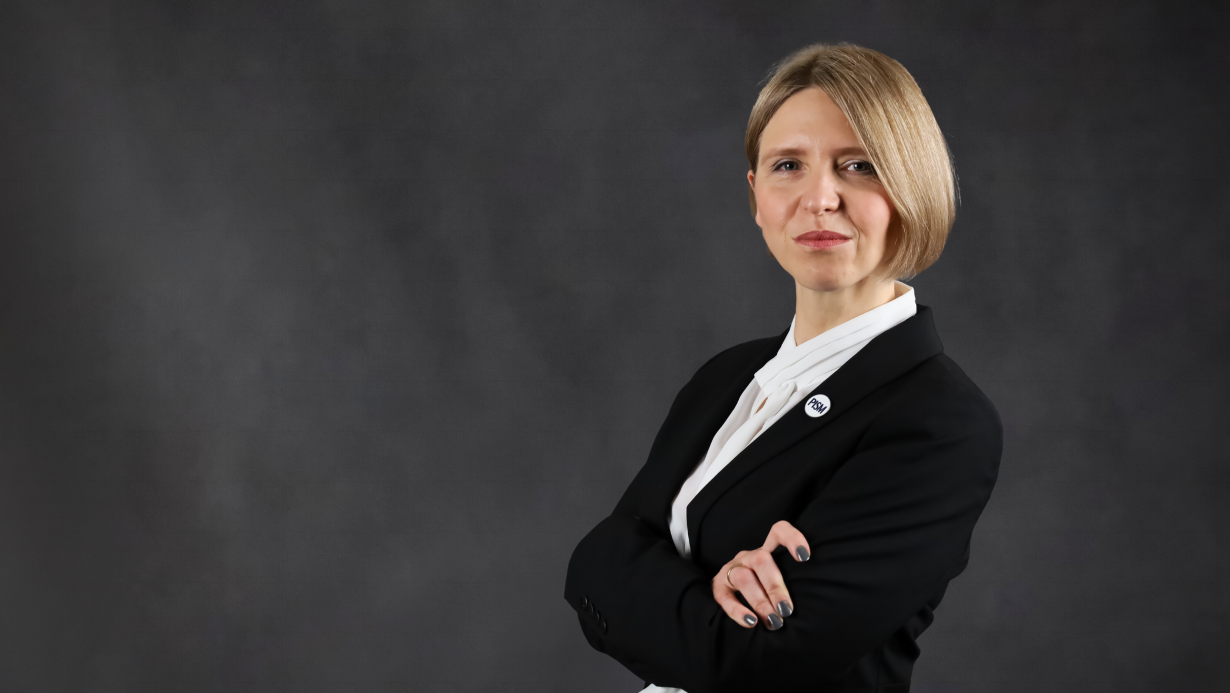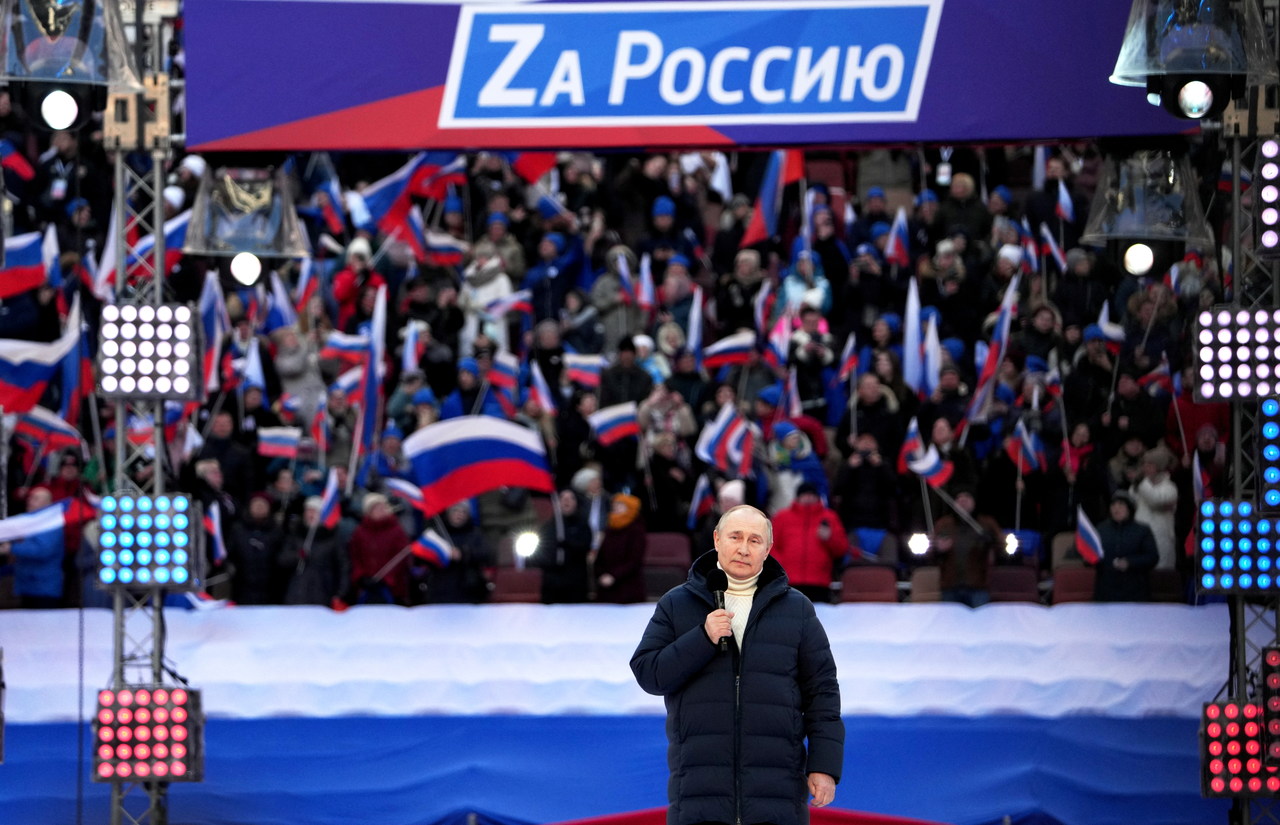Rivalry Flares between the Russian Army and the Wagner Group
The failures of the Russian armed forces in Ukraine have intensified disputes between Russian army leaders and the Yevgeny Prigozhin-led Wagner Group. Wagner has so far been useful in the fighting on difficult sections of the frontline in Ukraine, but it also has served the authorities by securing income and influence in Africa and the Middle East. Now, Vladimir Putin is diminishing Prigozhin’s achievements in Ukraine to prevent him from building an independent political position.
.jpg) Pool /Wagner Group / Zuma Press / Forum
Pool /Wagner Group / Zuma Press / Forum
On 24 May, in an interview with media, Prigozhin, who heads the Wagner Group, a mercenary military formation, accused Minister of Defence Gen. Sergei Shoigu of incompetence in the so-called special military operation in Ukraine. Prigozhin said that as a result of mistakes by Russian army leaders, Ukraine one of the most militarised countries and has the most well-trained armed formation in the world (although declaring it second to Wagner). The lack of immediate consequences for Prigozhin for his open criticism of the Russian army, for which one could face up to 15 years in prison in Russia, is linked to, among other things, his public visibility in Russia and continued usefulness to Putin and his close circle.
Prigozhin’s Relationship with the Russian Authorities
Yevgeny Prigozhin has repeatedly demonstrated his usefulness to the Russian power elite in so-called “grey zone” actions, that is, areas in which the Russian state officially did not want or could not be publicly involved. Since 2014, Prigozhin has owned and run the Wagner Group, which, among other things, has supported Russian hybrid operations in the Donbas. Wagner has also been influential in Africa (including in Libya, Sudan, the Central African Republic, and Mali) and the Middle East (since 2015 in Syria) where it secures profits for elites from, among other things, the exploitation of gas and oil fields, diamond, gold and ruby mines, and illegal timber exports. Some of these profits are used to fund the war in Ukraine.
Prigozhin also has a network of Russian bloggers and trolls, on whom he has relied for propaganda since the full-scale invasion of Ukraine to mobilise ultranationalists, as well as to get Russian recruits to the front. They are useful in shaping public sentiment on social networks, for example, Telegram. By criticising the heads of the Ministry of Defence (MoD) the General Staff, Prigozhin blames them, and not Putin, for the lack of progress in the war with Ukraine. He also helps members of the elite improve or shield their image—for example, he announced that the son of Kremlin spokesman Dmitry Peskov had served with Wagner, a move designed to protect the son from accusations that he was evading military service.
At this stage, Prigozhin is not in open competition with Putin, as he does not have a direct political base. Although he is strengthening relations with Sergei Mironov's “A Just Russia” party and has expressed his readiness to run for mayor of Saint Petersburg, Prigozhin’s position still depends on Putin’s favour.
Army and Wagner Group Rivalry
The disputes between Prigozhin and the MoD have their genesis in Russia’s intervention in Syria (2015-2019) in which Wagner acted as the main ground component. However, the mercenaries were not rewarded for the recapture of Palmyra from the hands of jihadists and the Russian military command failed to protect them from a U.S. attack in 2018 on a column of mercenaries storming a Conoco refinery controlled by Kurdish militias. In the short attack, around 200-300 Wagner mercenaries were killed, and there was no retaliatory action by the Russian government. During this time, Shoigu also deprived Prigozhin’s companies of numerous contracts for the military, which had brought in $2 billion in revenue between 2011 and 2018.
Prigozhin has used the military failures of the Russian invasion of Ukraine since February 2022 to openly criticise the MoD and military commanders loyal to Shoigu. Wagner’s involvement in the seizure of Popasna, Severodonetsk, and Lysychansk translated into Prigozhin’s growing popularity among Russian ultranationalists. The rivalry between Wagner and the military intensified at the beginning of the year when Putin entrusted the function of commander of the occupation forces in Ukraine directly to the chief of the General Staff Gen. Valery Gerasimov, who replaced General Sergei Surovikin, who had been cooperating with Wagner. After the seizure of Soledar mainly by Wagner mercenaries on 12 January, Putin portrayed it as a success by all Russian forces involved in the war in Ukraine—possibly a warning signal to Prigozhin about his growing influence.
The MoD then tried to weaken Prigozhin by restricting Wagner’s supply of ammunition and taking control of the recruitment process in the penal colonies (according to British intelligence, the army had recruited 10,000 convicts by May this year). Prigozhin blamed the MoD and the General Staff for the high losses among his mercenaries (estimated at 20,000-30,000) in the fighting for Bakhmut and threatened to surrender seized positions to Ukraine. The dispute was resolved through Gen. Surovikin, who acted as a go-between for Wagner and the army. Although Putin congratulated Wagner on the seizure of Bakhmut on 20 May, he pointed out that regular army forces were also involved in the operation. Prigozhin plays down this fact and attributes the success solely to his military formation. The head of Wagner claimed that by 5 June, his mercenaries had handed over all seized positions to the Russian armed forces and withdrawn from the Ukrainian front. Over the next two months, Wagner is expected to rebuild its combat capability.
The Growing Importance of Other Paramilitary Groups
To limit Prigozhin’s growing political ambitions, Putin has decided to increase competition with it from other private military companies (Redut, Potok, Konwoj, for example). These are financed by other oligarchs loyal to Putin, such as Volga Group founder Gennady Timchenko, Gazprom chief Alexei Miller, and the self-proclaimed head of occupied Crimea, Sergei Aksionov. They are already involved in operations in Ukraine where they support the activities of operational troops. Although they are in competition with the regular army for recruits, for example, they are not currently in open conflict with the MoD and General Staff. Redut is linked to the 45th Spetsnaz brigade of airborne troops in Kubinka and is most likely to be supervised by Russian military intelligence (GRU). The Gazprom-funded formations (Potok, Fakel, Plamya), which consist largely of the Special Combat Army Reserve (Boevoy Armeyskiy Rezerv Strany, or BARS), are also to be subordinated to this unit. Cossack units in Crimea that are part of the Convoy group sign contracts with the company and the MoD at the same time.
Reducing the role of Wagner in favour of other paramilitary formations would allow Putin to counterbalance Prigozhin’s growing popularity and strengthen the regime’s protective umbrella in the event of disloyalty on the part of some military structures.
Conclusions and Perspectives
Prigozhin’s open conflict with the MoD and General Staff lowers the morale of Russian soldiers, strengthens ultranationalist sentiment in Russia, and increases the potential for insurgency within the structures of the Russian armed forces. To further reduce the tensions between Prigozhin and the MoD and General Staff, Putin may decide to focus Wagner’s activity on Africa, which would also allow him to further co-finance the war effort in Ukraine and maintain an instrument of influence on the African continent. The Wagner mercenaries may also be entrusted with less-spectacular tasks, such as training new pro-Russian recruits in Ukraine or securing the border regions, tasks which Prigozhin will find harder to use to strengthen his position in Russia. Wagner’s possible return to a major fight depends on the course of the Ukrainian counter-offensive. If the frontline collapses, Wagner will be used as a battle-tested formation.
Although Putin officially declares his support for regular military structures, he will not abandon Prigozhin’s services for the time being as he cannot be sure of the arm’s loyalty in a situation of defeat on the Ukrainian front. Also, the Wagner head, while he criticises Shoigu and Gerasimov, continues to emphasise support for the policies of the Russian leader and, for now, is not an open rival to Putin. The rise of paramilitary groups competing with Wagner are a signal from the Russian government to Prigozhin not to show more political ambition. The possibility of Prigozhin as a potential successor to Putin, and one more radical and unpredictable than the current Russian leader, could be an element of disinformation directed towards the West.
However, it is also clear there are tensions building within Russia’s power structure, resulting in a tarnishing of Putin’s image as an effective arbiter to settle internal disputes. While this does not yet indicate a collapse of the Putin regime, states supporting Ukraine may reach out to the Russian public with messages publicising these tensions between Wagner and the army, with the aim of undermining the effectiveness of Russia’s military action in Ukraine.






